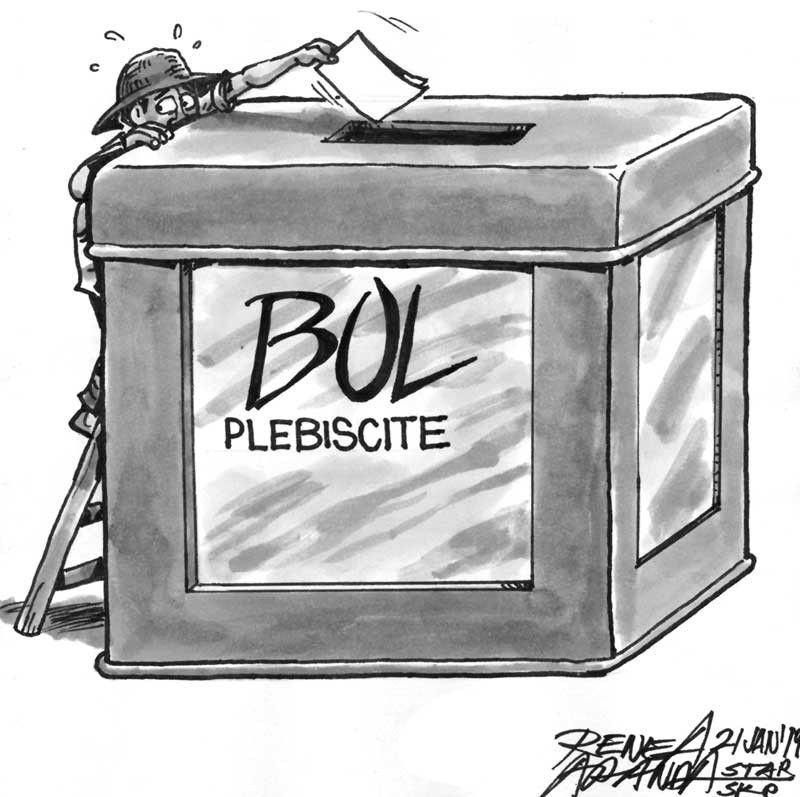EDITORIAL - Judgment Day for the BOL

Security forces are on full alert and there are spirited campaigns for and against the Bangsamoro Organic Law as the first phase of the plebiscite on the BOL is held today. The next phase on Feb. 6 can proceed only if the BOL is upheld by the people in this first phase.
Cases challenging the constitutionality of the law have yet to be resolved by the Supreme Court, which is expected to deliberate on the BOL next month, when residents in several areas in Mindanao vote on whether or not they want to be included in the proposed Bangsamoro Autonomous Region in Muslim Mindanao.
The BARMM will replace the ARMM. Among the issues raised against the BOL is the existence of the ARMM, whose creation was provided under the Constitution. Another constitutional issue is whether a parliamentary system – the proposed form of government in the BARMM – is possible without amending the Charter.
Objections to the BOL are also coming from certain local government executives in the affected areas as well as the Moro National Liberation Front faction led by Nur Misuari, who governed the ARMM for many years after the MNLF signed a peace agreement. These groups are instead pushing for a shift to federalism.
Proponents of the BOL, on the other hand, emphasize that its ratification would be a significant step toward enduring peace in Mindanao. The Moro Islamic Liberation Front, whose leaders are expected to play key roles in running the BARMM, has raised expectations that it can handle extremist threats posed by groups such as the Mautes, the Abu Sayyaf, and the MILF’s breakaway faction the Bangsamoro Islamic Freedom Fighters.
MILF leaders have vowed to abide by the will of the people in today’s plebiscite, regardless of the outcome. They will be held to their promise. This law was crafted as part of efforts to bring peace to Mindanao. The people’s will must be known through a process that is peaceful, orderly and credible.
- Latest
- Trending


























